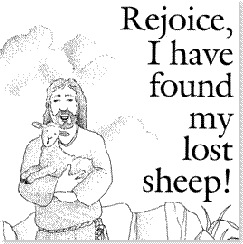Message from Fr. Jose Koluthara, C.M.I.
Infant Jesus, implant in us the seeds of justice, love and peace and make them grow in us so as to experience your presence always. |
In his classic Christmas story The Story of the Other Wise Man (Harper, N.Y., 1899), Henry Van Dyke wrote of keeping Christmas not just one day but every day: “Are you willing to believe that love is the strongest thing in the world – stronger than hate, stronger than evil, stronger than death – and that the blessed life which began in Bethlehem… all those years ago is the image and brightness of Eternal Love? Then”, said Van Dyke, “you can keep Christmas, and if you can keep it for a day, why not always?” Why not, indeed?
In today’s liturgy, each of the three scripture texts offered by the prophet Isaiah, the apostle Paul and the evangelist Matthew reminds us that the reason we can keep Christmas today and every day is because Christmas celebrates the gift of God-with-us. Through the incarnation and birth of Jesus, an event that is prophesied in today’s first reading (Is 7:10-14) and celebrated as fulfilled in today’s Gospel (Mt 1:18-24), God has become forever involved and fully invested in humanity.
One connotation of “God-with-us” is worth noting, suggests Karl Rahner (The Great Church, N.Y.: 1994). “When we say that God is the Lord and goal of humankind, that without God there is no meaning to our lives, that God is our helper and saviour on whose providence we are dependent, that God in mercy, will forgive our guilt… that for those who believe in, hope in and love God, God prepares an eternal life of happiness, then we shall have interpreted “God-with-us” in the right way”.
Bearing witness to the gift of “God-with-us” in one of his Christmas homilies, Oscar Romero, martyred Archbishop of San Salvador, affirmed that “Jesus’ birth attests that God is now marching with us in history, that we do not go alone and that our aspiration for peace, for justice, for a reign of divine law, for something holy, is far from earth’s realities. We can hope for it, not because we humans are able to construct that realm of happiness which God’s holy words proclaim but because the Builder of a reign of justice, of love and of peace is already in the midst of us”.
God in our midst, God-with-us, Emmanuel, this is the ultimate gift of Christmas that gives all our other days and nights meaning, purpose and vision. This is the reason we may choose to skip all else in order to keep Christmas truly… to keep the gift of God-with-us.







